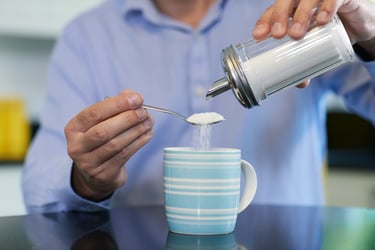eStoreRx™
Online Supplement Dispensary
eStoreRx™ is an easy direct-to-patient ordering & fulfilment program for lifelong wellness.
For over 40 years, Biotics Research Corporation has revolutionized the nutritional supplement industry by utilizing “The Best of Science and Nature”. Combining nature’s principles with scientific ingenuity, our products magnify the nutritional
eStoreRx™ is an easy direct-to-patient ordering & fulfilment program for lifelong wellness.
Biotics Research is proud to expand our commitment to education with the Wellness Unfiltered Pro Podcast. Each episode delves into key health topics and the clinical applications of our premier products. Through candid, insightful conversations, our team offers practical guidance to keep you informed and empowered as a healthcare professional.
February 19 2026
The journal Sleep Medicine Reviews recently published the results of a systematic review and meta-analysis examining melatonin supplementation among c...
 The incidence of colitis, which involves inflammation of the colon’s lining, is on the rise in the US, even in children. Recently, Hasan Zaki, PhD and lead researcher at UT Southwestern, and his team looked at the modern Western diet (high in fat, sugar, and animal protein) to find out if they could establish the main underlying cause for the development of this disease. Previously, high-fat diets have been found to impact inflammatory bowel disease (IBD), which encompasses colitis. The role that sugar plays, however, has been more controversial. Zaki and his team fed mice a solution of 10 percent concentration of dietary sugars, such as glucose, fructose, or sucrose, diluted with water. They found that mice with a genetic or chemically-induced predisposition to colitis developed severe symptoms when given sugar. By using gene-sequencing, Zaki and his team were able to conclude that the glucose solution, in particular, significantly changed the communities of the microbiota population of the mice.
The incidence of colitis, which involves inflammation of the colon’s lining, is on the rise in the US, even in children. Recently, Hasan Zaki, PhD and lead researcher at UT Southwestern, and his team looked at the modern Western diet (high in fat, sugar, and animal protein) to find out if they could establish the main underlying cause for the development of this disease. Previously, high-fat diets have been found to impact inflammatory bowel disease (IBD), which encompasses colitis. The role that sugar plays, however, has been more controversial. Zaki and his team fed mice a solution of 10 percent concentration of dietary sugars, such as glucose, fructose, or sucrose, diluted with water. They found that mice with a genetic or chemically-induced predisposition to colitis developed severe symptoms when given sugar. By using gene-sequencing, Zaki and his team were able to conclude that the glucose solution, in particular, significantly changed the communities of the microbiota population of the mice.
Specifically, the gut bacteria Akkermansia, a mucus-degrading gut bacterium, proliferated, while other beneficial bacteria like Lactobacillus became less abundant. The researchers reported "The mucus layer protects intestinal mucosal tissue from infiltration of gut microbiota...Higher abundance of mucus-degrading bacteria, including Akkermansia muciniphila and Bacteroides fragilis, in glucose-treated mice is, therefore, a potential risk for the intestinal mucus barrier.” Breaching the protective epithelial barrier triggers intestinal inflammation and plays a key role in the development of colitis. While glucose made the most impact, all three sugars that were tested altered the gut microbial terrain. "Our study clearly shows that you really have to mind your food," says Zaki. Future research is planned to establish whether sugar impacts the development of other inflammatory diseases such as fatty liver and obesity, as well as neurodegenerative disorders like Alzheimer’s disease.
Related Biotics Research Products:
Submit this form and you'll receive our latest news and updates.
Insights at the molecular level suggest that obesity may have neuronal origins in an area of the brain called the nucleu...
Learn more
*These statements have not been evaluated by the Food and Drug Administration. This product has not intended to diagnose, treat, cure, or prevent any disease.
© 2025 Biotics Research Corporation - All Rights Reserved
Submit your comment